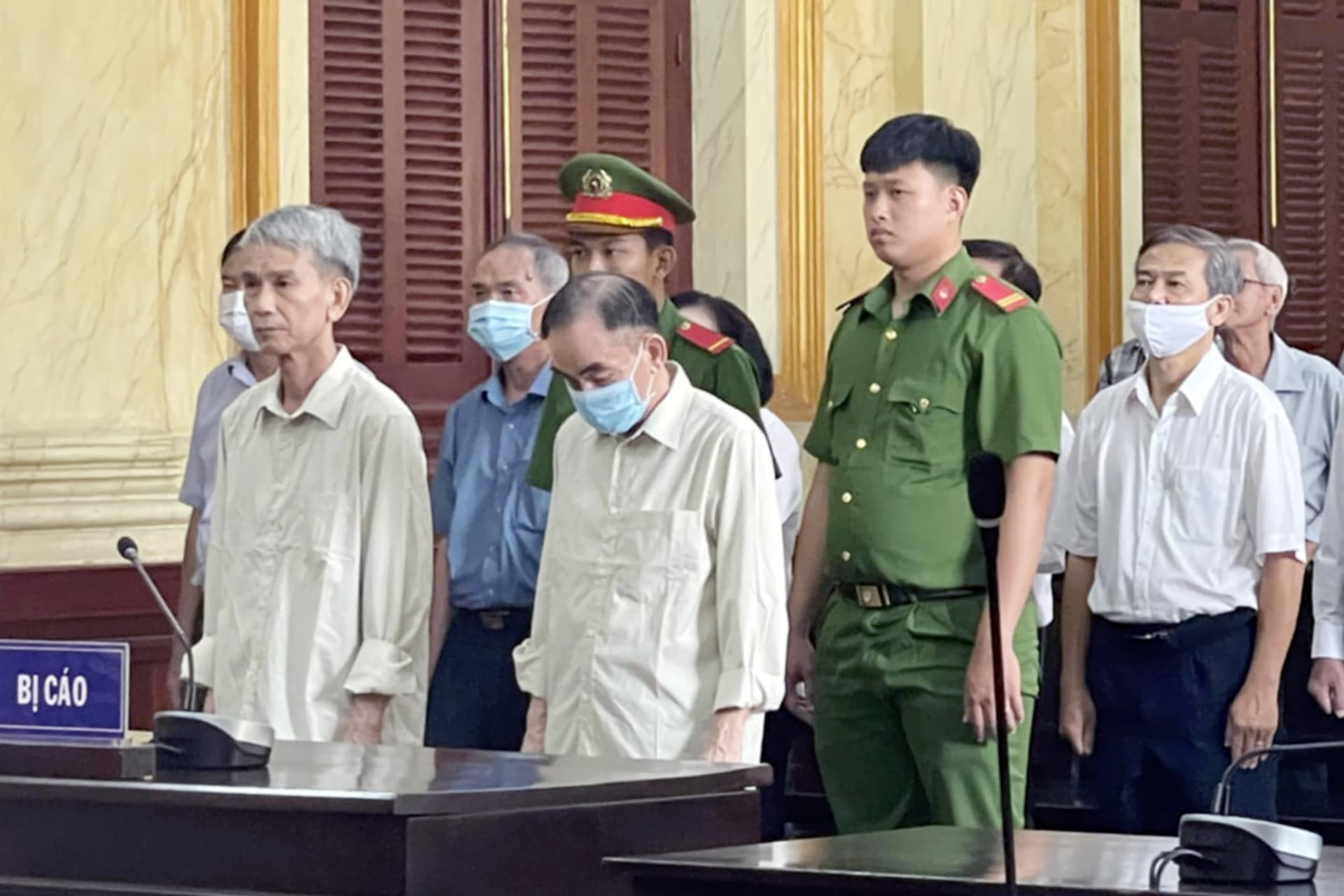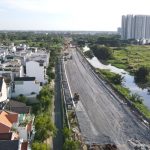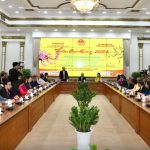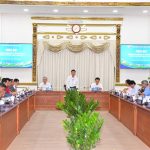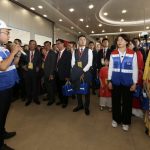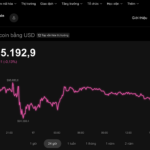Today (July 4), the People’s Court of Ho Chi Minh City opened a trial against eight former leaders of Saigon Real Estate Corporation – Ltd (Resco) for “Violation of regulations on the management and use of state assets, causing loss and waste.”
The defendants include: Nguyen Tin Trung (former Chairman of Resco’s Board of Members), Nguyen Phuoc Ngoc (former Chairman of the Board of Members of the Ltd Company for Business and Housing Management, former General Director and Chairman of the Board of Members of Resco), Vo Huu Hai (former member of Resco’s Board of Members), Nguyen Thi Thuy Hang (former member of Resco’s Board of Members), Do Van Phuc (former member of Resco’s Board of Members), Tran Cong Duc (former member of Resco’s Board of Members), Hoang Hai Dang (former Deputy General Director of Resco), and Nguyen Dinh Phu (former Deputy General Director of Resco).
The trial is expected to last from July 4 to 5, with Judge Nguyen Thi Ha presiding.
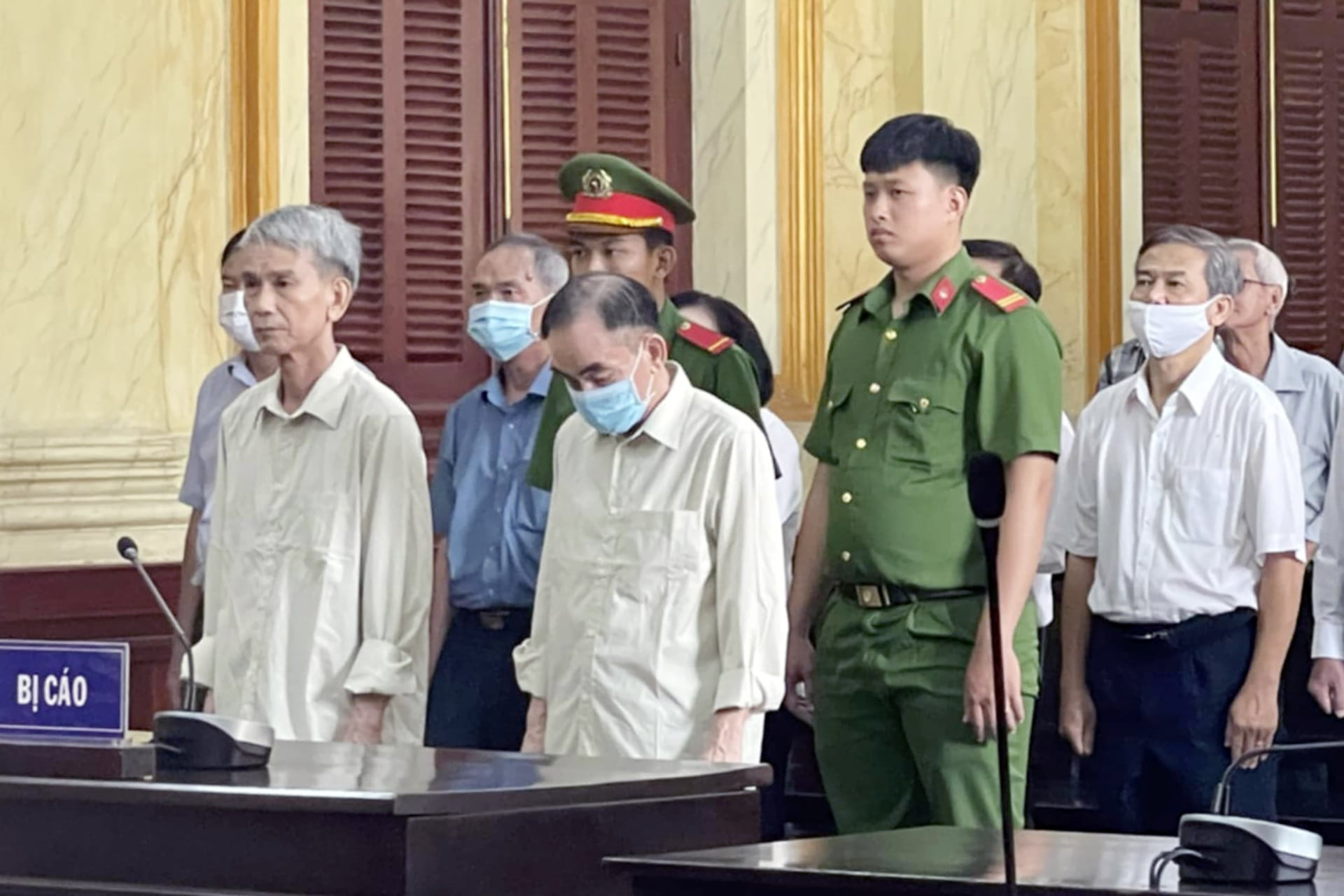
The defendants in court. Photo: YL |
According to the indictment, Resco was formerly known as Saigon Real Estate Corporation, a 100% state-owned enterprise under the Ho Chi Minh City People’s Committee. The enterprise’s functions included investing in and constructing projects, resettlement housing, social housing, and canal clearance programs.
In 2010, Saigon Real Estate Corporation was transformed into Saigon Real Estate Corporation – Ltd (Resco).
Also in 2010, the Ho Chi Minh City People’s Committee approved the principle of assigning Resco to implement the project on compensation, site clearance, and resettlement for the Rach U Cay project.
At the same time, in the following years, the Ho Chi Minh City People’s Committee also approved Resco’s proposal to change the purpose of 15 land plots to offset the investment capital of phase 1 of the Rach U Cay project, instead of having to contribute it to the city budget.
The decision stated that the land plots would continue to be used for investment, business, and exploitation according to the city’s planning, with the land use fee paid to the state budget.
However, Resco failed to follow this directive and proceeded to transfer some of the assigned land plots.
Specifically, despite the Ho Chi Minh City People’s Committee’s decision to transfer the land plot at 299/18 Ly Thuong Kiet to a member unit of the corporation, the defendants sold the entire land plot to Real Estate Joint Stock Company No. 7 (which is not a member unit) for over VND 38 billion. According to the assessment, at the time of the transfer, the difference in value caused a loss of more than VND 2.1 billion to the state budget.
Regarding the land plot at 682 Hong Bang, the Ho Chi Minh City People’s Committee intended to sell it to a member unit of the corporation, but the defendants sold it to Nam Viet Real Estate Construction Joint Stock Company (which is not a member unit) for over VND 22.2 billion, causing a loss of more than VND 1.8 billion to the state budget.
As for the 4,606.5 sq. m land plot on National Highway 50, District 8, the Ho Chi Minh City People’s Committee decided to approve Resco’s use of the land plot to build apartments in combination with commercial space. However, the defendants transferred the land plot to Saigon Construction and Trading Ltd Company 5 (in which Resco holds 99.78% capital) for over VND 90 billion, causing a loss of more than VND 41.4 billion to the state budget.
The indictment determined that the defendants’ violations caused a loss of more than VND 45 billion to the state.
After Resco transferred the above three land plots, the Ho Chi Minh City Land Registration Office proceeded to grant land use rights certificates to Real Estate Joint Stock Company No. 7, Nam Viet Real Estate Construction Joint Stock Company, and Saigon Construction and Trading Ltd Company 5. Subsequently, these companies transferred the land plots to other individuals. As of now, these land plots are no longer under state management.
Thanh Phuong
Comprehensive regional connectivity
In addition to building strong physical infrastructure, Ho Chi Minh City needs to strengthen its soft connections with other provinces in the region in order to promote economic development. This includes prioritizing the training of skilled workforce and ensuring access to quality healthcare.
Emotional Kieu people when admiring Ho Chi Minh City from Metro Line 1
Ho Chi Minh City has undergone a remarkable transformation since the day I left. It now boasts a completely different appearance, exuding a fresh and vibrant energy. This sentiment was captured by Mr. Nguyen Duong Nam Phuong, a Vietnamese American, who was amazed by the city’s newfound liveliness.

